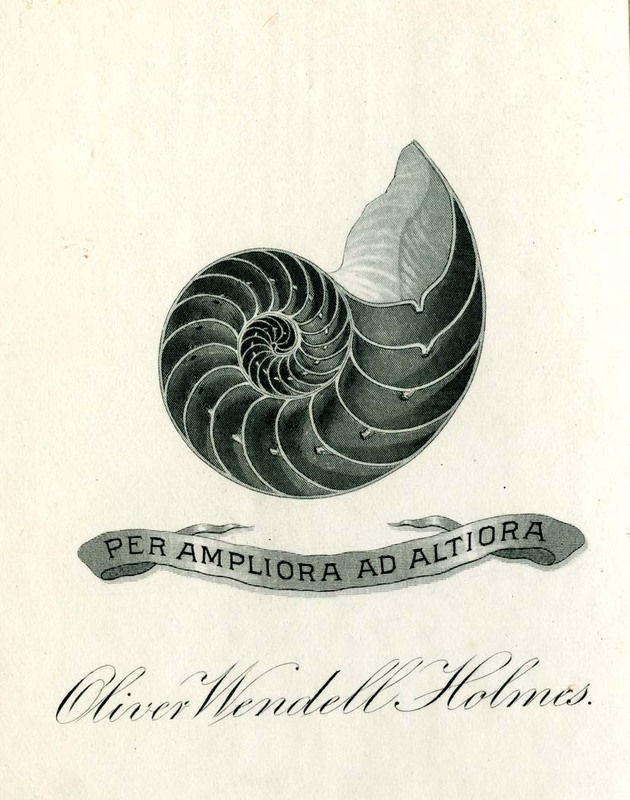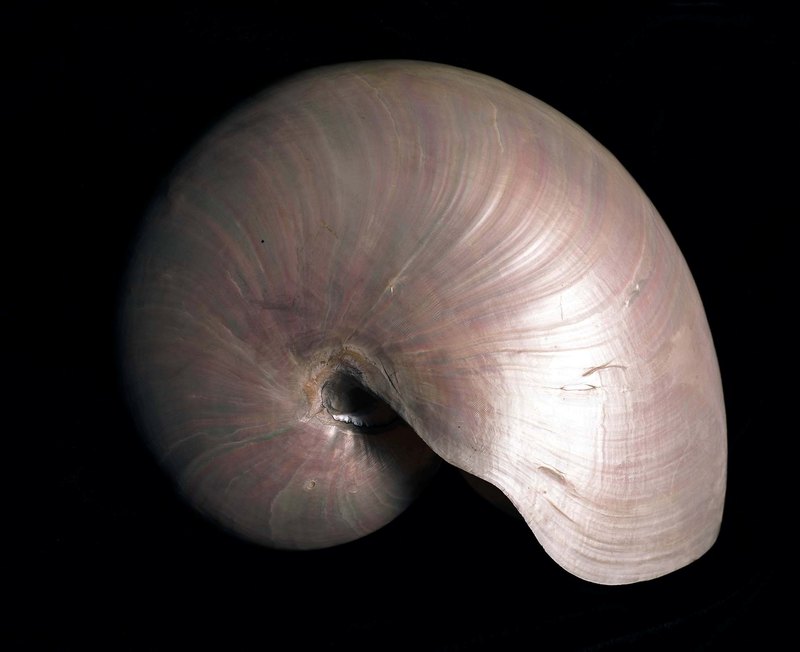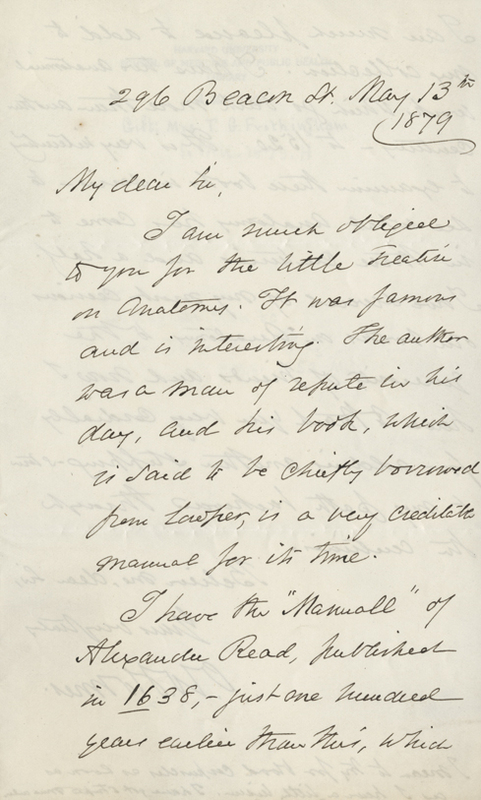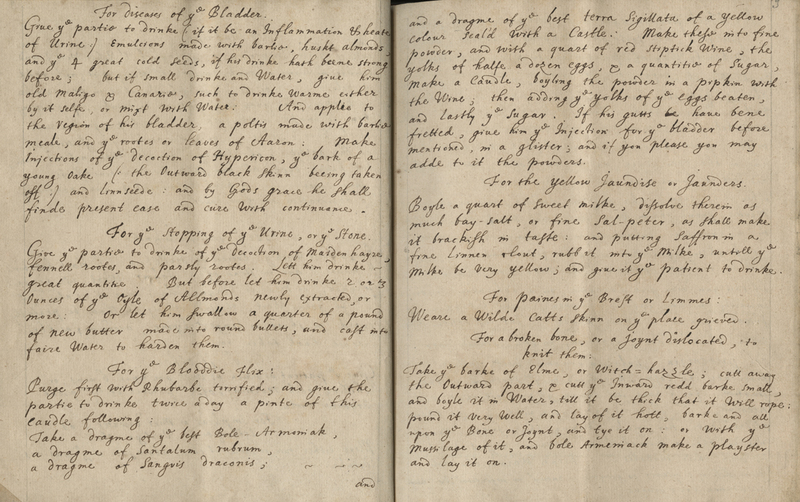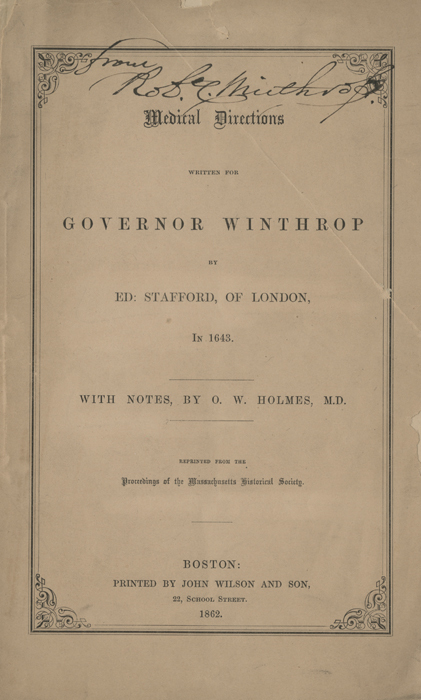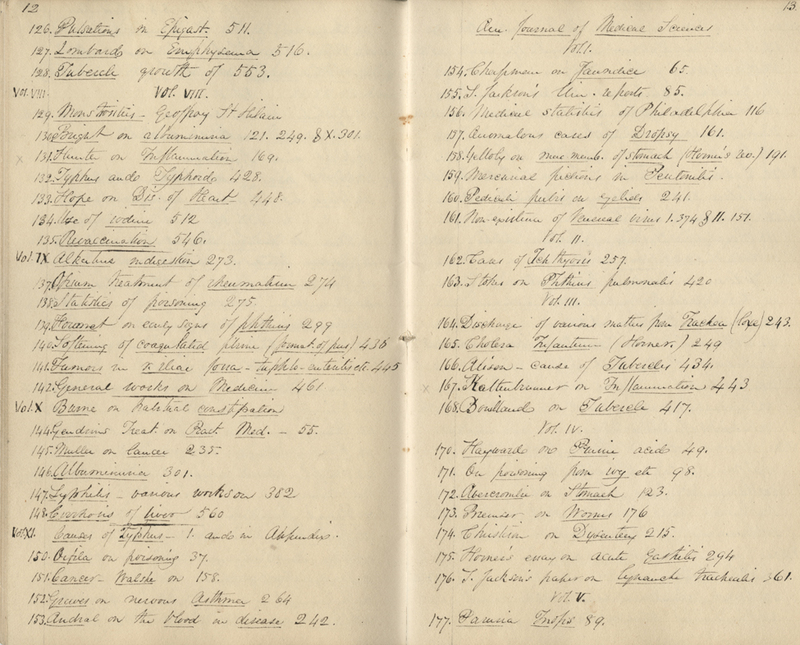Rare Book Collection
Oliver Wendell Holmes was collecting medical books as early as his European sojourn in 1835, and he conducted his landmark research into puerperal fever in the 1840s through a thorough examination of recent medical literature available to him at the Boston Athenaeum. In a letter home to his parents from Europe, Holmes said, "You must not be astonished at finding so many old books among my collection—they have all been bought slowly, one by one, deliberately chosen on account of their intrinsic value, and I venture to think are one of the most valuable little collections which a young man has sent home to America."
The nautilus shell, formerly on display in the Boston Medical Library’s building at 8 The Fenway, was probably originally in Holmes’ study. The nautilus shell is a theme in Holmes’ work, and is the inspiration for the design of his bookplate.
Holmes’ extensive medical library grew by not only his own purchases but also many gifts from friends, admirers, and colleagues. In this letter to physician John Samuel Whiting (1828-1896), Holmes expresses his thanks for the copy of an early anatomy text, James Keill’s The anatomy of the human body abridg’d. Holmes writes, “I have the ‘Manuall’ of Alexander Read, published in 1638—just one hundred years earlier than this, which I am much pleased to add to my collection. I have two anatomical works which go back more than another century—to 1520. It is very interesting to examine these books in series—to see what anatomy has come to in three centuries and a half…. I thank you very cordially for adding another stepping-stone to my path backward through the centuries.”
English physician Edward Stafford compiled this book of basic recipes for medical disorders such as madness, vertigo, and the king’s evil for John Winthrop (1588-1649), the governor of Massachusetts.
At the request of Robert C. Winthrop, president of the Massachusetts Historical Society, Holmes annotated the text and presented a paper on it to the society in 1862; he also then incorporated the Stafford recipes into his introductory lecture at Harvard that November. Holmes said, “Whatever we may think of Dr. Stafford’s practice, it is not certain that his patients would all have done better under the treatment of the present day. Some differences there would certainly be in our favor…. But slight cases of disease would commonly get well under his treatment, and severe ones often die under ours…. Though some of his prescriptions may cause us to smile or shudder, it would be well if a physician of our time, whose prescriptions should be exhumed in the year 2080, were able to stand the examination of posterity as creditably as the very respectable Dr. Stafford.”
Holmes praised in a speech the development of periodical indexes. “This idea has long been working in the minds of scholars, and all who have had occasion to follow out any special subject. I have a right to speak of it, for I long ago attempted to supply the want of indexes in some small measure for my own need. I had a very complete set of the ‘American Journal of the Medical Sciences’; an entire set of the ‘North American Review,’ and many volumes of the reprints of the three leading British quarterlies. Of what use were they to me without general indexes? I looked them all through carefully and made classified lists of all the articles I thought I should most care to read. But they soon outgrew my lists…. Nothing, therefore, could be more pleasing to me than to see the attention which has been given of late years to the great work of indexing.” This notebook of Holmes almost certainly contains the classified lists he mentions, with references to articles on anatomy, pathology, surgery, midwifery, chemistry, and therapeutics.

